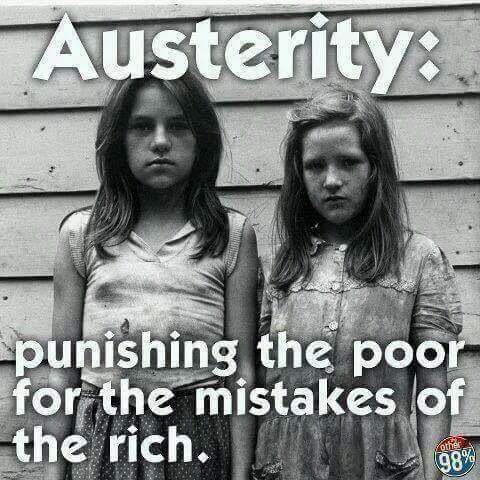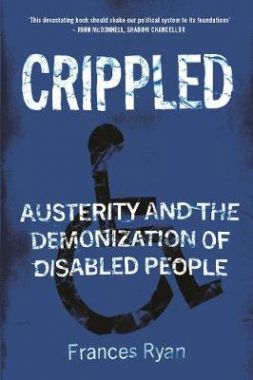- Details
- Written by: Kamran Mofid
- Hits: 3443
The struggle of conscience at the heart of the financial crisis
Bankers should behave at work as they do at home, urges Archbishop
Bankers and businessmen leave their sense of right and wrong at home when they go to work, according to the leader of the Roman Catholic Church in England and Wales.
“Too many people in big business are living a divided life, ignoring the moral values that they uphold when with their families… As a result, the business world is in danger of losing its sense of “common good”, putting the pursuit of profit before the interests of society…
According to the Archbishop working in business is a "noble calling" which has had a profound effect on the development of human civilisation.
But, an "unhealthy" focus on power and money has crept into some companies, harming society rather than helping it.
Businessmen themselves have admitted privately that they behave differently at work than they do at home with their families, says the Archbishop.- Details
- Written by: Prof. Steve Szeghi
- Hits: 7996
Globalisation for the Common Good Initiative (GCGI)
10th Annual International Conference
"Sharing the Wisdom, Shaping the Dream:
Reclaiming the Moral and Spiritual Roots of Economics and Capitalism"
Waterperry House, September 2-5, 2012
A Report and Reflection: Steve Szeghi, Professor of Economics, Wilmington College, Ohio, USA, GCGI Participant
From Sunday, September 2, 2012 until Wednesday September 5th, almost 100 participants gathered together at Waterperry House, of the School for Economic Science, in Oxford, England. These participants came from a myriad assortment of nations, careers, and ways of life. They were united by a common desire to build a better world, more reflective of the values of peace, social justice, care for the earth and other species, and service to the entire human community as well as the community of nature to which we all belong.
The opening addresses of The Reverend Canon Dr. Vincent Strudwick and Mr. Ian Mason, Principal of the School of Economic Science, coupled with the opening comments of Professor Kamran Mofid set the general tone for the conference. What can be done to incorporate our shared values into the policies, institutions, and structures which govern, shape, and influence the actual world in which we live? This was the common question that virtually all participants attempted to address in various ways in their talks, questions, and dialogue throughout the conference proceedings.
Waterperry House with its rich history steeped in the lore of the English countryside complete with a 12th century chapel adjoining the main house, as well as its many most beautiful frescoes and paintings, and other works of art echoed the common wisdom of many of the world religions and spiritual traditions, provided an idyllic and meditative setting for the talks and discussions of the conference. The School of Economic Science furnished many speakers, volunteers and participants and provided intellectual depth, rigor, and quality, worthy of Henry George, for whom the School of Economic Science has a special fondness.
Each morning beginning with Monday, the day started with meditation during which dozens of conference participants greeted the morning and awakened together, in largely silent reflection and personal prayer, interspersed with readings from Edward Abbey, the American Indian Poet Leslie Marmon Silko, Sufi tradition, and Baha’i readings and prayers. On Monday night in the town of Oxford, the Dialogue Society hosted a dinner for participants at a Turkish restaurant. The food was exquisite, the atmosphere delightful, and participants were informed of the numerous humanitarian efforts of the Dialogue Society.
Towards the close of the conference, participants joined in support of the Conference Declarations (the complete text is available on this website). Much in keeping with the tenor of the conference, the Declaration not only espouses the values of Peace, Justice, Service, Volunteerism, Ecology, and Respect for the Diversity of Life, it also proposes several practical steps in translating those values into action and policy.
On Tuesday evening, at Corpus Christi College, University of Oxford, the 10th Anniversary GCGI gala dinner was held during which the first GCGI Award was presented to Dr. Vladimir Ivanovich Yakunin. The award was given in recognition to Dr. Yakunin for his extraordinary and tireless work on behalf of Peace and Justice at the global level as well as his dedicated service in building a better world for future generations. Dr Yakunin was accompanied by his wife, Natalia, one of his sons and a grandson.
On the final day of the conference, in what was a surprise to the Founder of the Conference, a Special Award of Appreciation was presented to GCGI Founder, Prof. Kamran Mofid, on behalf of the GCGI family, by Profs Jamshid Damooei, Yahya, Kamalipour, and Steve Szeghi, for his steadfast devotion to building, maintaining, and nourishing the Globalization for the Common Good Initiative. His personal dedication, interest in, and dialogue with, each and every conference participant was cited as being truly remarkable and uniquely distinctive.
The Globalization for the Common Good Initiative upon completing its 10th year anniversary looks forward to continuing to grow and develop. Next year’s conference will meet in Paris, France and the year after, once again in Oxford. Conference participants look forward to a second decade during which the GCGI will continue to attract even a broader and more diverse spectrum of participants. Together people from across the globe, from diverse perspectives, cultures, religions, economic systems, can and must find ways to share and appreciate the common values of peace, justice, and ecology, and to discover how to best incorporate those values into policies and institutions. The participants of the GCGI are happy to have found a vehicle to be part of that process.
GCGI 2012 Annual Conference- The Final Programme
The Opening Remarks: Kamran Mofid
The Opening Address: The Reverend Canon Dr. Vincent Strudwick
Dr. Yakunin Receives First Globalisation for the Common Good Initiative (GCGI) Award
- Details
- Written by: Kamran Mofid
- Hits: 6803
Lest We Forget:
Austerity is:
-Voluntary;
-Achieved wholly through spending cuts;
and above all, it is ideologically driven.
This is nothing, but a manifestaion of a cruel and inhumane state.
UK austerity has inflicted 'great misery' on citizens, UN says
‘The UK government has inflicted “great misery” on its people with “punitive, mean-spirited, and often callous” austerity policies driven by a political desire to undertake social re-engineering rather than economic necessity, the United Nations poverty envoy has found…
‘About 14 million people, a fifth of the population, live in poverty and 1.5 million are destitute, being unable to afford basic essentials, he said, citing figures from the Institute for Fiscal Studies and the Joseph Rowntree Foundation. He highlighted predictions that child poverty could rise by 7 percentage points between 2015 and 2022, possibly up to a rate of 40%...’ Continue to read

Photo:democraticunderground.com
A Must Read book on Austerity and Pain inflicted on the Innocent by a Mindless, Heartless and Cruel Government
Crippled: Austerity and the Demonisation of Disabled People by Frances Ryan – review
‘Austerity has been a political choice. Since 2010, social security benefits will have been cut by £35bn a year by the early 2020s. Tax cuts will cost the Treasury £47bn per year by 2021-2; lucky rich.’-Frances Ryan

Austerity is nothing but hitting and punishing the innocents, poor, weak and vulnerable for the crimes of the rich and powerful
Capitalism for the Poor and Socialism for the Rich!
Rise in hospital admissions for stress is blamed on the recession
Job insecurity a factor as 47 per cent more people seek treatment since credit crunch of 2007
“Rising numbers of people are being admitted to hospital with stress caused by the recession, official figures show. After Olympic cheer provided a brief respite, the statistics reveal the severity of mental problems suffered by Britons at a time of widespread job insecurity.
…Stress is the single biggest cause of sickness in the UK, affecting one in five of the working population and racking up 105 million days lost each year, according to the Health and Safety Executive…
The HCIS figures do not include the millions who visit GPs, A&E departments or alternative practitioners for stress which are also thought to be increasing.
Experts blamed the recession for the rising toll but expressed surprise at the rate of hospitalisation. Stress is normally a trigger for illness, not an illness in itself.
Cary Cooper, professor of organisational psychology at Lancaster University and an expert on stress, said: "I have never seen figures like this before. Stress is a trigger mechanism for a whole range of conditions, from heart attacks to immune system disorders, mental illness and depression and anxiety.”
Job insecurity a factor as 47 per cent more people seek treatment since credit crunch of 2007
The impact of austerity on schools and children’s education and well-being
Children as young as nine talk about suicide as mental health problems get worse, teachers warn
Read more:
How austerity is forcing disabled women into sex work
Austerity to blame for 130,000 ‘preventable’ UK deaths – report
Cruel State-Crippled by the state: the impact of austerity on disabled people
UK austerity policies 'amount to violations of disabled people's rights'
The impact of austerity on children’s social care and practice
